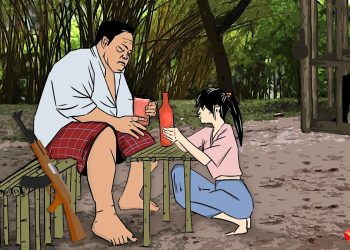Public consultations held prior to Burma’s national level political dialogue started on Thursday in Dawei, Tenasserim Division.
Two days of discussions are being held at the district level from Jan. 5-6, with government officials, political parties, Karen and Mon ethnic armed organizations and civil society groups participating.
In late December, the Union Peace Dialogue Joint Committee (UPDJC), led by State Counselor Daw Aung San Suu Kyi, formed regional political dialogue monitoring committees for Karen State in southeast, Tenasserim Division in the south and in Naypyidaw.
Another two consultations will be held in Myeik and Kawthaung districts later this month, with regional recommendations consolidated in final talks on Jan. 23-24 in Tenasserim, also known as Tanintharyi.
“The topics include the political and economic issues, as well as land and the environment,” said Ko Kyaw Min Htaik, one of the representatives joining the district forum.
Ko Kyaw Min Htaik, who also represents the Tavoy (Dawei) Youth Organization, said that participants in the two-day consultations received only three minutes each to present their views. During his allotted time, Kyaw Min Htaik said he spoke on education and youth development under the category of politics.
Daw Tin Tin Yee, a Lower House lawmaker from Tenasserim’s Kyun Su Township, told The Irrawaddy that due to the time constraints, those who were not able to present their concerns could share their papers at the regional level talks.
“When there are different perspectives on the same issue, we will include those in our regional recommendations,” she said.
In Karen State, public perspectives on each topic are to be collected through at least seven public consultations in ethnic Karen communities and shared at national level talks, Pado Kwe Htoo Win told The Irrawaddy recently.
The consultations will also be held in Rangoon, Arakan, Chin and parts of Shan State. Talks are located in areas where nationwide ceasefire signatories the Arakan Liberation Party, the Chin National Front, the Restoration Council of Shan State and the Pa-O National Liberation Organization, are based.
NCA signatory the All Burma Students’ Democratic Front (ABSDF) will start its own public consultations in Rangoon on Saturday, Jan. 7, and will share the findings with other ethnic armed organizations during the collective recommendations of the upcoming peace conference in February, according to U Myo Win, the vice chair of the ABSDF and a secretariat member of the UPDJC.
Along with the public consultations for the political dialogue, the parallel civil society forum is scheduled to be held in Naypyidaw at the end of this month.
















